The biggest moment of the championships for me, and a moment of national pride, was the victory of M. Tentoglou in the long jump. Having won the Olympics and known to be a cool-headed competitor, he was the natural favourite of the event. However T. Montler has made considerable progress (and in fact he jumped a 8.38 m PB for silver) and Tentoglou had to surpass himself. He did just that, with a massive 8.55 in his second jump, backing it up with a 8.51 m in his last. I cross my fingers for this summer's World's.
Speaking of favourites, the biggest surprise of the championships has been the defeat of R. Crouser. He has been dominating head and shoulders the shot put, to the point that he appeared invincible. He has 12 of the 20 best throws ever. And then D. Romani, who has time and again barely missed the podium, managed to push him out of the highest step, 22.53 m to 22.44 m. (Crouser's last defeat was at the 2019 World's where he lost by just 1 cm).
I have written on several occasions that there is nobody like A. Duplantis. Even S. Bubka who had dominated pole vault for years cannot be compared to him. Mondo, as everybody calls him, is a class of his own. I have been following his efforts in this winter's indoor meetings where he was going for the 6.19 m world record. It turned out that the Belgrade arena brought him luck. That's where, two weeks before the championships, he cleared the 6.19 m height. And on the championships he managed on his third try to go one centimetre higher. With 6.20 m he is now 4 cm above Lavillenie, 5 cm above Bubka and 14 cm above the 4th performers (Hooker and Kendricks).
G. Holloway was the favourite of last summer's Olympics over the 110 m hurdles. And he managed to lose. But he took his revenge in Belgrade where he first equalled the world record with 7.29 s in the semis and then won the final, in 7.39 s despite crashing the second hurdle. His fluid style is really impressive. The hurdles were another great moment me with the qualification of M. Trajkovic to the final. (Trajkovic was the 2019 European indoor champion in the hurdles but had been since plagued by injuries that have slowed down his progression. It is encouraging to see him back in great shape and competitive as before). The hurdles were also a unique occasion of a tie broken by drawing lots. In fact D. King and S. Nomoto finished third in their respective semis with exactly the same time 7.565 s (and both in the 8th position) but only one could go to the final. Curiously this is not the first time this happens. In 1995 two athletes finished ex aequo in the 8th place for the men's 60 m. At that time the decision was taken by tossing a coin. In Belgrade the names of the two athletes were put in a bag from which a volunteer selected one. The drawing favoured King.
I have been following J. Richards for quite some time now, since the 2017 World's and his great performance at the 2018 Commonwealth Games. This time he managed to climb to the highest rung of the world hierarchy, winning the men's 400m in 45.00 s. The women's race was a solo performance for the double olympic champion S. Miller-Uibo. She led the 400 m from the outset and won in 50.31 s. F. Bol who takes the winter season away from her specialty of low-hurdles, was second in 50.57 s, but she never represented a real danger for Miller. A. Wilson won the women 800 m in 1:59.09, her first (individual) major title. She was pushed all the way by F. Hailu and world champion H. Nakaayi but she managed to perfectly control her race. Of course the absence of K. Hodgkinson did make the situation simpler. Those who are following the world indoor circuit have certainly noticed M. Garcia who can be seen on the start line revving an imaginary motorcycle. Well, this time Garcia drove his motorcycle all the way to a world title with 1:46.20. He had the world leading performance, with 1:45.12 from last month, so his victory was not really a surprise.
Tsegay's domination in women's 1500 m (with 3:57.19 s) was absolute. The silver medalist was 5 seconds behind, in a race where all three medals were won by ethiopian runners. W. Nanyondo, who has moved up from the 800 to the 1500 m, was once again just outside the medals. I must confess that I was expecting J. Ingebrigtsen to win the men's 1500 m race, just like he did in the Olympics, in particular since he had improved the world record just a month before the championships. Well, S. Tefera had a different opinion and in the end he did prevail over Ingebrigtsen 3:32.77 to 3:33.02 thanks to his better finish. L. Hailu won the women's 3000 m with 8:41.82. (She has the same family name as the 800 m silver medalist but they are not sisters: they are born three months apart in 2001). I was thinking that L. Girma would take his revenge after his recent defeat by S. Barega over 3000 m but unfortunately for him it was a bis repetita. Barega prevailed 7:41.38 to 7:41.63. The major surprise was the elimination of world leader B. Aregawi in the heats.
C. Samba-Mayela created a minor surprise in women's 60 m hurdles winning in a faultless race with 7.78 s. This is her first major title, but then, she is just 21 years old. To tell the truth it was a final with many very young runners: B. Anderson, 21, Y. Mota, 21, Z. Sedney, 20, to say nothing of D. Kambungji, 19, who was in contention for a medal up to the second hurdle but her effort ended in a spectacular fall.
The men's high jump was won by S. Woo with 2.34 m. Woo had barely missed an olympic medal in Tokyo finishing 4th. This time G. Tamberi could not repeat his 2016 world indoor performance (he had won in Portland with 2.36 m) and had to settle for third, with 2.31 m. The women's event was really exciting. E. Patterson who had been dominating this winter's meeting led the competition up to 1.98 m where a miss saw Mahuchikh and Dubovitskaya take the lead. And Patterson had a successful second attempt over 2.00 m taking back the lead. However the experience of Mahuchikh did make the difference (In fact it is funny to talk about experience for a just 20 years old athlete). She passed 2.00 m on her third attempt and went on to pass 2.02 m on her first. Patterson missed once and tried twice at 2.04 m but those heights are really beyond what she is accustomed to. And thus Mahuchikh added the World gold to the European one she had obtained last year.
L. Martinez killed the competition in men's triple jump with a first jump at a world leading 17.64 m. He backed it up with a 17.62 m in his fourth attempt. P. Pichardo tried his best with 17.42 and 17.46 m in his two first jumps but it is clear that he has at this moment some injury that prevents him from going for really top performances. Olympic champion K. Nageotte led the women's pole vault up to 4.75 m. However the title went to S. Morris who cleared 4.80 m on her third attempt adding thus another world title to the one she had won in Birmingham in 2018. A. Dongmo was the favourite of women's shot put, and she led the competition with 19.32 m from her first (and second) throw. However on the 5th throw (spinner) C. Ealey uncorked a massive 20.21 m taking the lead. But Dongmo really wished to add the World gold to her European, 2021, one (to say nothing of her African ones back in 2016 and 2014 when she was competing for Cameroon). And thus she threw a world leading 20.43 m ending the suspense.
D. Warner led the men's heptathlon from the first event. Just as in Tokyo his high jump was below par but this did not cost him the first place. What did though was the pole vault where his 4.90 m was not enough, given that S. Ehammer jumped 5.10 m taking the lead with 23 points of difference. H-C. Hausenberg's 5.30 m brought him just 6 points behind A. Moloney who had jumped 5.10 m and was third. However neither Ehammer nor Hausenberg are good middle distance runners and thus Warner won easily 6489 to Ehammer's 6363, Moloney winning bronze with 6344. While I hate women's heptathlon I do like a lot the pentathlon. I find the fact that it is contested in just one day making it really challenging. N. Vidts (who was 4th at last year's Olympics) took the command of the event already at the 60 m hurdles and, while A. Sulek surpassed her briefly thanks to the high jump, she regained control at the next event. There was no suspense for the first place in the 800 m. In fact Vidts won the race in an excellent 2:08.81, Sulek finishing second in 2:09.97, for respective totals 4929 (a world leading performance) and 4851. The only suspense was for the third place where H. Mills was trailing K. Williams a whole 136 points and managed with 2:09.97 to make up most of it finishing at just 7 points behind Williams 4673 to 4680. K. Johnson-Thompson, the reigning pentathlon world champion, made a token appearance with below par preformances, leaving the competition after four events.
All in all it was a very fine championship with some great performances and quite a few surprises. My only criticism is that World Athletics is selling the broadcast rights to whoever pays more and thus one has to pay different providers for each competition. In particular in France the winter competitions were often covered by l'Equipe (and a subscription was necessary) but when it came to the championships they were rebroadcast by the Athletics Federation and again one had to pay for another subscription. I am really thinking about getting a VPN so that I can watch the images on the WA youtube channel (which are free, provided your country does not have an official broadcaster).



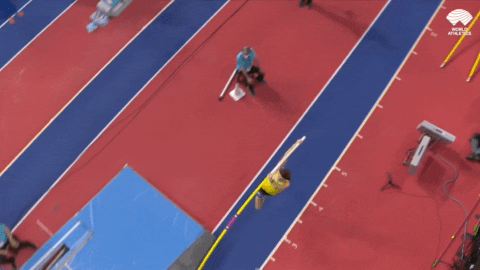
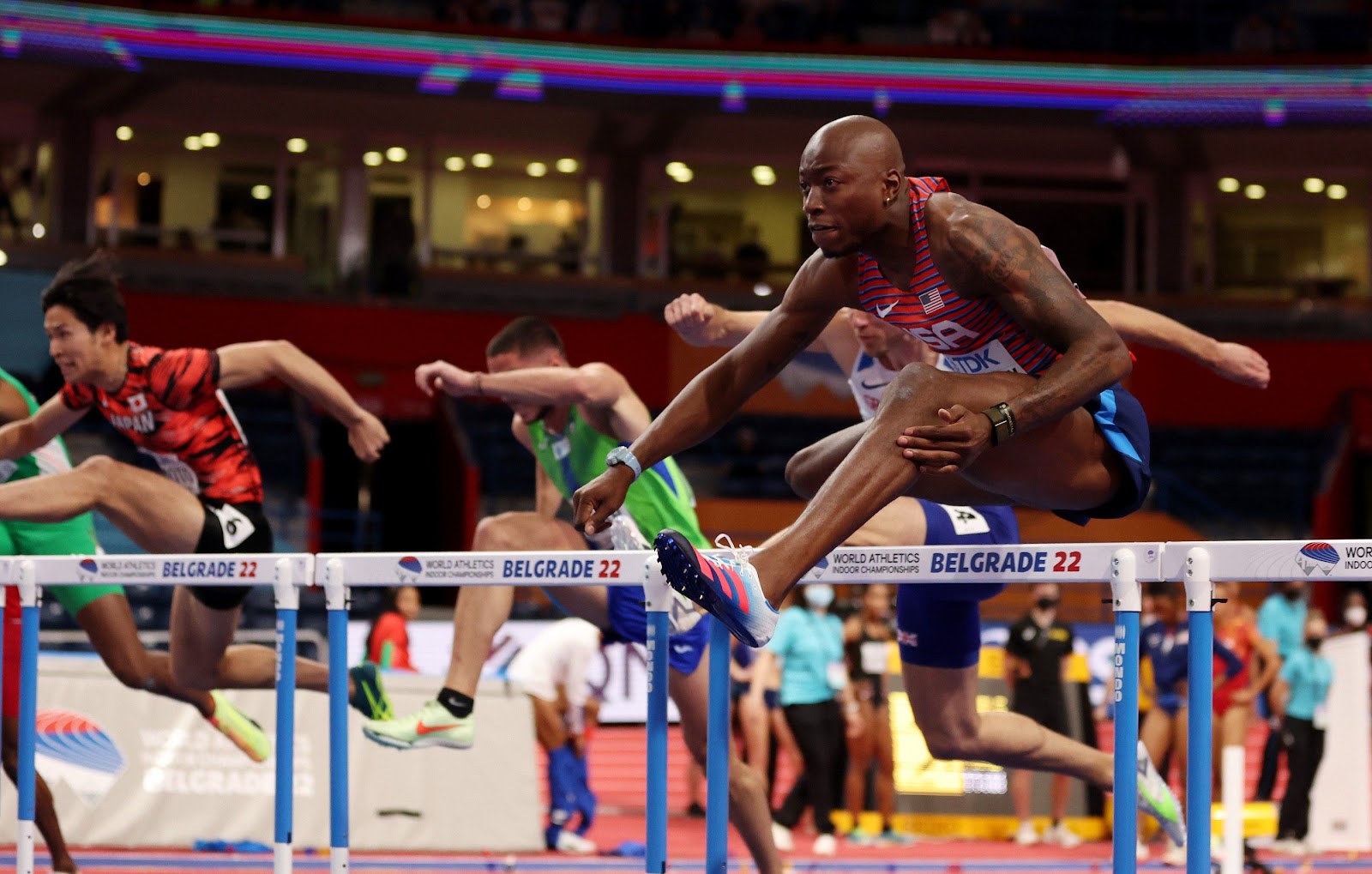
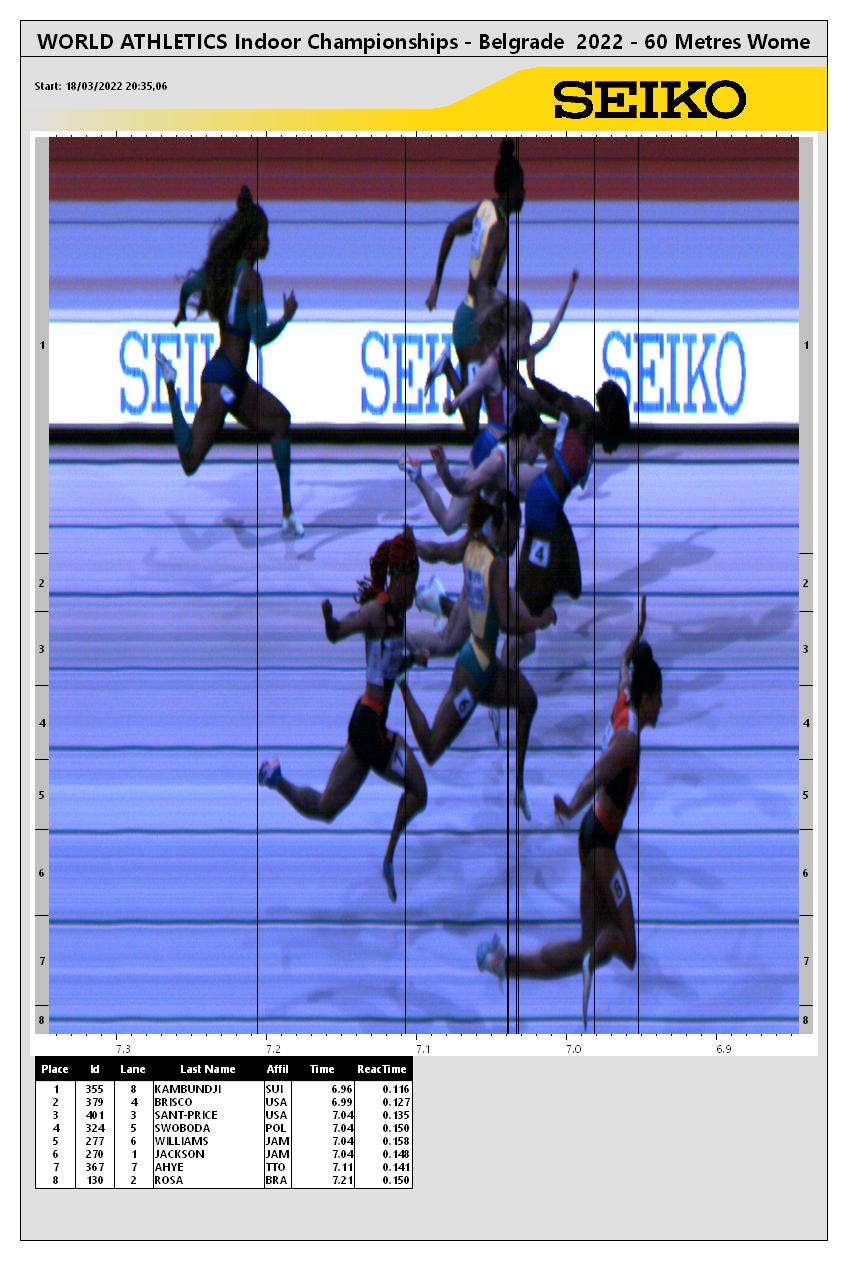

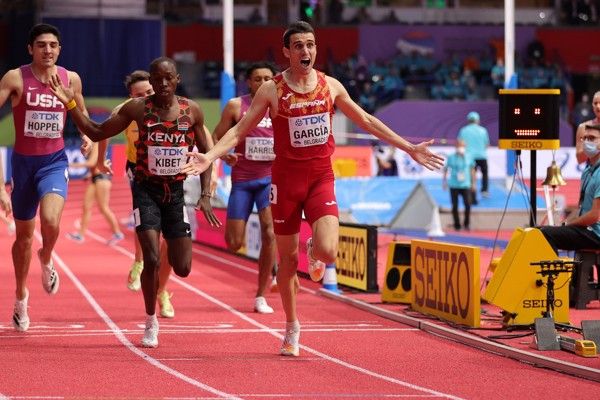
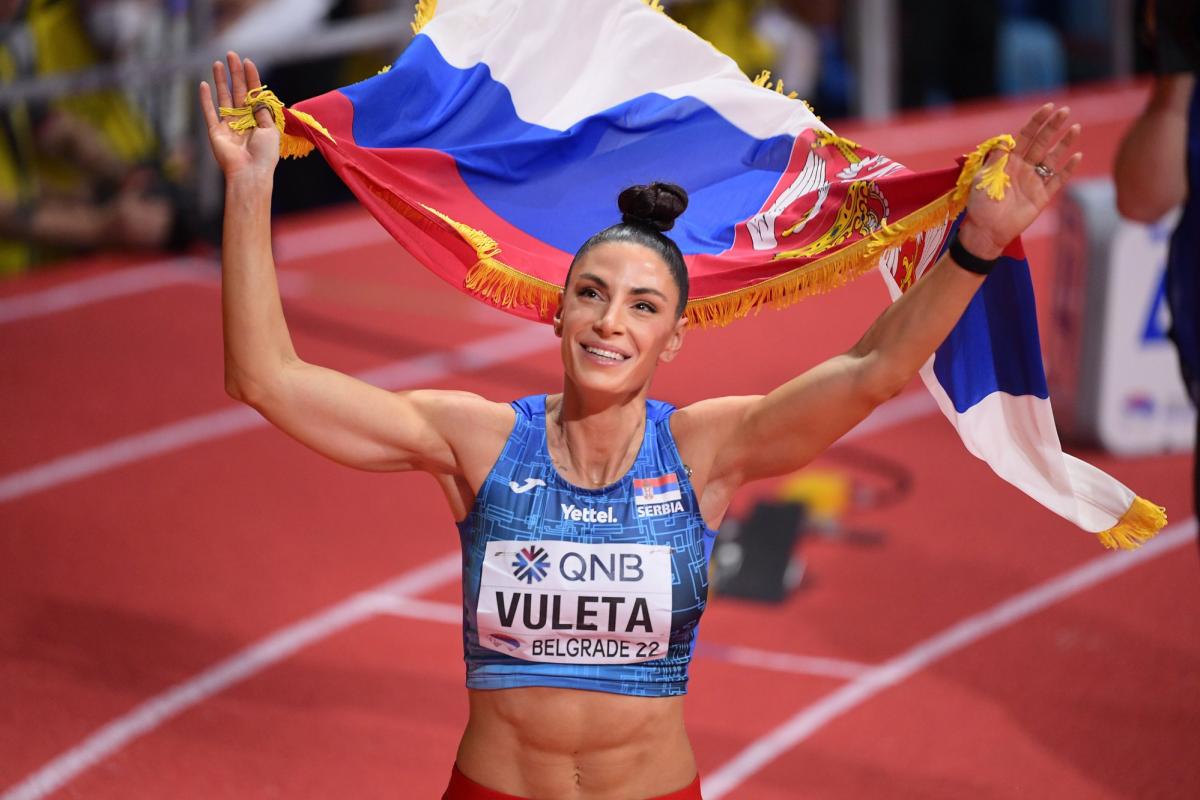


No comments:
Post a Comment